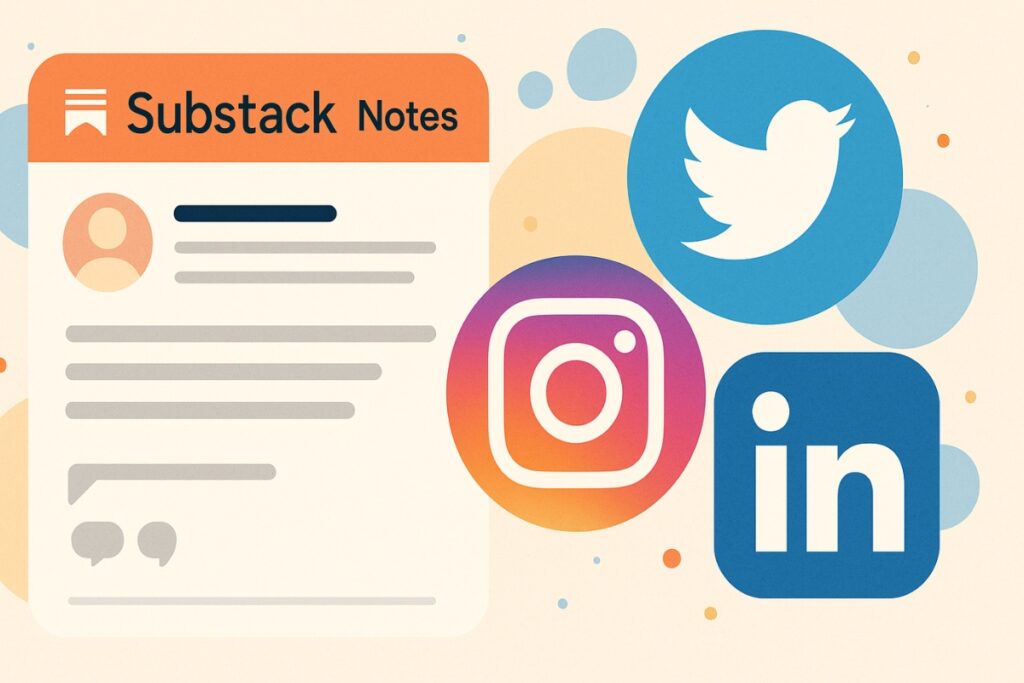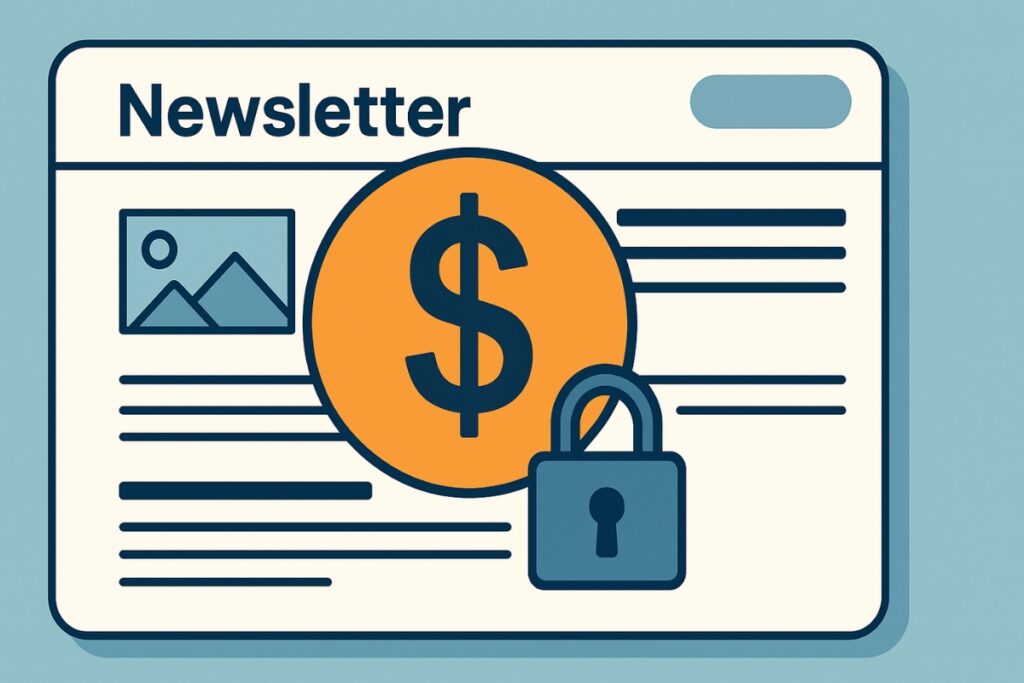At its core, Substack is a platform that allows authors to publish newsletters, combining the feel of a blog with the direct reach of email. You write posts, send them to subscribers and optionally offer paid content. It takes care of hosting, subscription payments, analytics, and more.
Unlike social media, Substack gives you full control over your content and subscriber list. This means that even if Substack changes, your audience remains your audience.
Step by Step: Setting Up Your Substack
Here’s an easy way to get started without feeling overwhelmed.
Step 1: Create your account and publication
- Go to Substack login page and register (email + password).
- Choose a publication name (something clear and niche-friendly).
- Add a tagline/description to help visitors immediately understand what your Substack offers.
Step 2: Configure basic settings
- Upload a logo or header image (optional, but helps with branding).
- Choose your theme or layout (Substack offers simple templates).
- Decide whether your publication is Only free or Mixture of free + paid (You can enable “Pay Later”).
- Connect payment (Stripe) if you plan to monetize.
- Consider connecting a custom domain (to keep your Substack URL looking professional).
Step 3: Write your first posts (seed content)

- Before the public launch, write two to three posts to showcase your voice and content style. This gives early visitors something to engage with and sets expectations.
- basic Keyword research helps craft your content in a way that your ideal readers are actually searching.
Step 4: Publish and launch
- First, send your first post to yourself to preview (check formatting, images, subject line).
- Once you’re happy, publish it and send it to subscribers (maybe just you + a few testers at first).
- Share your newsletter on your social platforms and your personal network.
How to grow your Substack and gain subscribers

Once your Substack is live, the next challenge is growing your audience. Here are some proven strategies:
1: Use Substack “Notes”.
Substack has a microblogging feature called Notes (short posts, interactions) that work somewhat like a social feed. Publish short insights or suggestions, exchange ideas with others and thereby arouse interest in your main newsletter.
2: Promote on social media and your own network
- Share any newsletter issue or excerpt on Twitter, LinkedIn, Instagram, etc.
- Ask friends, colleagues or early followers to subscribe and share.
- Repurpose content (for example, turn your newsletter into blog posts or social media posts) to attract new attention.
3: Be consistent and publish regularly
- Try to post short notes frequently and longer newsletters once or twice a week.
- The more you publish, the more discoverable your content becomes.
- With a simple solution, staying consistent becomes easier Content calendar to plan your posts in advance.
4: Offer Value (Free + Bonus)
- Free content must provide real value, tips, lessons, stories and insights.
- Occasionally add bonus content or more in-depth material to keep people sticking around.
- Encourage feedback: surveys, questions in your newsletter, ask what topics people want.
- Consider designing a simple solution Content marketing plan to align your newsletter topics with long-term goals.
How to monetize your Substack newsletter

Once your audience grows, you can explore monetization opportunities.
1: Paid Subscriptions
Substack allows you to place posts behind a paywall. Subscribers pay monthly or annually to access premium content.
You decide which content is free or paid. Many successful Substackers provide most of the content for free and reserve extras for a fee.
2: Tips or donations
Some Substack users enable a “tip” or “supporter” option that allows people to donate to support free content.
3: Cross-selling products or services
If you offer courses, coaching or digital products, your newsletter can act as a funnel. Free content builds trust and soft mentions in your posts can lead to sales.
Avoid these common Substack mistakes

When building momentum, it’s also important to avoid common pitfalls:
| trap | Why it hurts | How to avoid it |
| Get started with paid content immediately | Scares readers away before building trust | Start free; only consider it paid later |
| Inconsistent publishing | Readers lose interest or forget about your newsletter | Choose a schedule you can stick to (even if it’s modest). |
| Rethink design or perfection | Delays the start and destroys momentum | Use a simple theme and prioritize content |
| Ignore reader feedback | Misses opportunities to improve or socialize | Ask readers what they want more or less of |
| Rely solely on one platform | If Substack changes, your audience access could be affected | Mirror important content elsewhere and secure your subscriber list |
Summary and what you should do now
Here’s your quick checklist to move forward:
- Sign in to Substack and set up your publication
- Before you launch, write a few high-quality posts to showcase your content
- Share your newsletter across your social channels, contacts and audience
- Use Notes to post micro-content and interact
- Maintain a regular publishing cadence that readers can rely on
- Once you’ve built trust with your audience, consider simple monetization strategies.
- Some developers integrate systems like GoHighLevel to optimize lead capture, content delivery, and follow-up as your audience grows.
With the right systems, use is possible Automations and content marketing together to drive continued growth.
As your newsletter gains traction, some creators choose to combine it with a simple blog or a system to manage content, capture leads, or offer bonus resources. Tools that support this kind of growth can make your platform’s evolution smoother.
By following these steps patiently and with determination, you will continually build an engaged audience and potentially transform your writing into something even more impactful.
Don’t just plan – publish your first Substack post and start building your audience today.
Frequently asked questions about Substack
Yes. Using Substack is free. Fees only apply when you activate paid subscriptions (10% discount + Stripe fees).
Yes. You can earn money through paid subscriptions, tips, or by offering your own services or products in your content.
No. Substack is beginner-friendly and does all the engineering for you, with no coding or web design required.
Promote consistently, use notes for engagement, and focus on delivering valuable content. Quality + Consistency = Growth.
How-to guides, insights, personal stories and curated tips – especially on niche topics – perform well.
Not necessarily. But as your audience grows, combining your Substack with a blog or system can help expand your reach and manage your content more efficiently.

